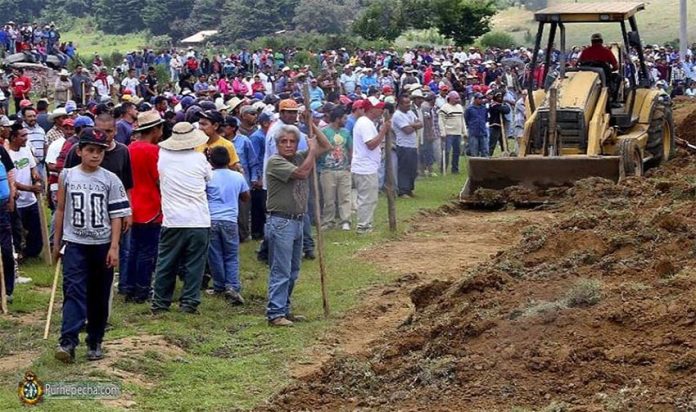Territorial disputes in Oaxaca have cost the lives of at least 78 people since 2017, according to the state government.
Another 68 people have suffered injuries during heated conflicts over land ownership, while the disappearance of 12 people is believed to be connected to the same issue.
The Secretariat General of the Oaxaca government says there are currently more than 400 unresolved territorial disputes in the state, mainly in the Central Valleys, Mixteca and Sierra Sur regions.
The main reason for the high number is that 81.3% of all land in Oaxaca belongs to ejidos, or agrarian communities, and is therefore owned communally. Complicating the issue further is that half of the 394,000 registered ejidatarios, or community landowners, in the state, are deceased.
Efraín Solano Alinarez, head of the organization Unidad, Identidad y Raices de Oaxaca (Unity, Identity and Roots of Oaxaca, or Unir), told the newspaper El Universal that the figures explain why there is a state of permanent conflict in Oaxaca.
He said the first step in resolving the disputes, particularly in indigenous communities, is to fix the flaws in the collective land ownership system.
Solano said that it is often unclear who owns a parcel of land, explaining that the disorderly growth of towns has in some cases made historical boundaries difficult to identify.
The most serious conflicts occur when private property owners clash with ejidatarios, he added.
To solve the conflicts, the Unir chief said, the records of state and federal authorities need to be consulted to determine the rightful owners of disputed land.
Solano also said that more resources need to be allocated to mediating disputes. To oversee that process, he recommended the establishment of a dedicated government group.
The Unir chief also said that the presence of foreign companies in parts of Oaxaca, especially the Isthmus of Tehuantepec where several wind farms have been developed, has also raised the ire of landowners and led to conflicts.
Solano added that the federal government’s isthmus trade corridor project, which includes the modernization of the railway between Salina Cruz, Oaxaca and Coatzacoalcos, Veracruz, and new mining developments could make existing land conflicts worse or create new ones.
President López Obrador says the trade corridor and other projects such as the Maya Train will bring significant economic and social benefits to the south and southeast.
But Solano warned that “in Oaxaca, the triumph or failure of the president’s social goals will depend on the response he provides to agrarian conflicts.”
Source: El Universal (sp)
